I can feel summer coming, but I still have two films left after this one for some reason! So here were are, back in the Silent Film Era… although not really because the first talkie came out in 1927. How did Charlie adapt?!
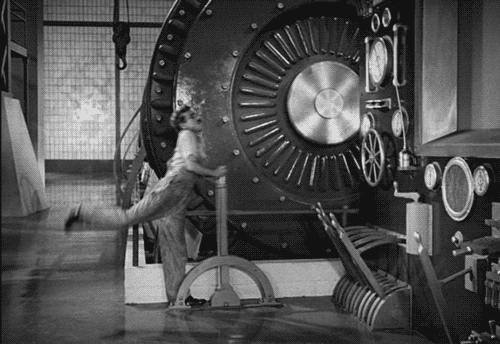
Well, apparently, he originally wrote a full script for the film, but abandoned it when he realized that his lovable “tramp” character just didn’t work when he spoke.
Modern Times works both as a slapstick comedy (one of Chaplin’s most revered) and as a biting commentary on the abuse of the working class due to industrialization during The Great Depression.
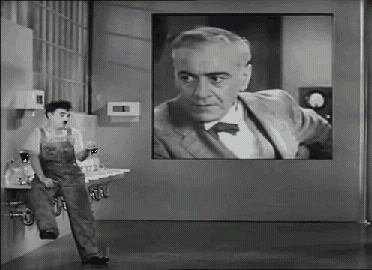
Here, A Factory Worker’s boss orders him to stop smoking on his break. The boss has cameras watching every worker at all times, and Chaplin’s character just isn’t cut out for that regimented work ethic.
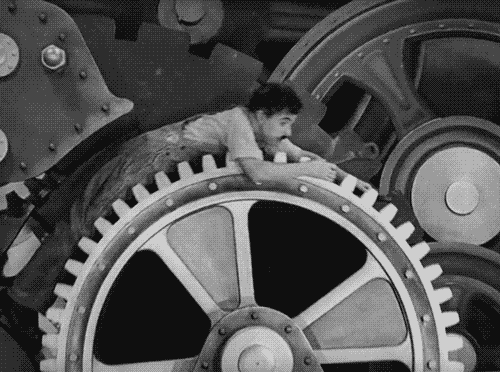
After an awesome scene where he gets sucked into a machine, he begins to have a mental breakdown.
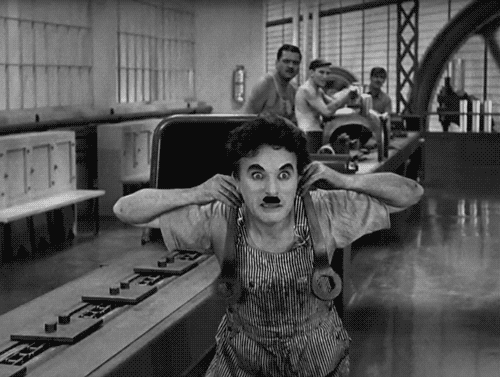
Chaplin ends up getting arrested, where he meets the down-on-her-luck orphan girl with a knack for petty theft.

She even looks fierce stealing a banana. The character, “the Gamin,” is played by famous actress Paulette Goddard.
Chaplin also goes through a series of mishaps where he is mistaken for a union leader. The film offers a pretty dark depiction on the way the organization of laborers were treated.
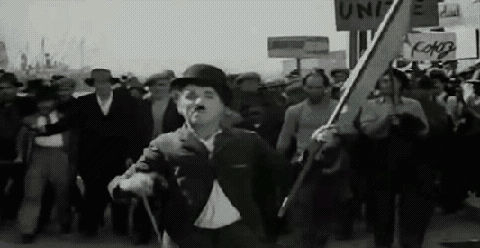
But it’s easy to watch the film for what it is, a silly comedy about two lovable misfits falling for each other.
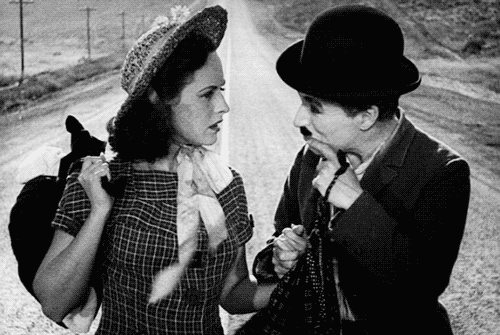
There’s also a great scene where Chaplin’s boss tests out a device that can eliminate the lunch breaks of his workers by mechanically feeding them.
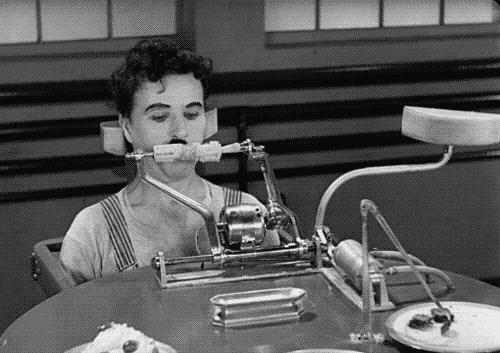
Not sure how he could continue working during this, but okay.
The film culminates in A Factory Worker and A Gamin getting jobs as performing waiters, and Chaplin’s voice is actually heard for the first time ever in a film when he sings a gibberish version of Léo Daniderff’s “Je cherche après Titine.”
Modern Times is all good fun, and it is certainly one of the greatest hits from the king of the Silent Era. The IMDb Top 250 lists it at #39, while the AFI 100 Films puts it at #78. At only 89 minutes, it’s a nice little retreat back to the days of economic despair and abusive factory conditions.
No comments:
Post a Comment